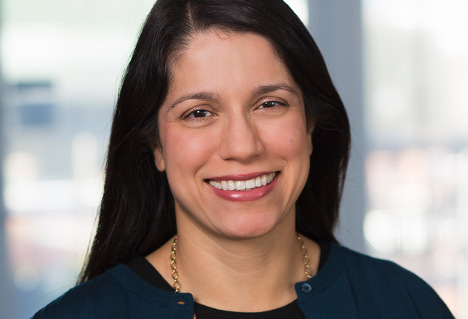Sweden is Meena Ambardar’s third continent and third drastically-different culture. Born in India and with much of her life spent in New York, she decided to leave Wall Street and transplant to Stockholm in 2004 after marrying a Swede and starting a family.
“I had a pretty good job by New York standards, but it was hectic,” she tells The Local. “And since my roots in America weren’t so deep, I was the one who said, ‘Let’s go to Sweden.’ Because of my Indian background, I had already done the immigrant life. I could do it again.”
For her family, the decision was the right one. Ambardar thrived as a mother in Stockholm.
"While I miss the energy and the vibe of New York, Sweden is the best place for our family. Especially with kids, in Sweden you start appreciating nature in a way a New York girl never could. It's a real privilege to be able to ice skate on a spectacular lake so close to central Stockholm.”
But after a while she needed a bit more. For Ambardar, finding a career in Sweden wasn't something she worried about, but something the experienced lawyer felt she needed to do for herself.
“I wasn’t working, and that was hard. I had been working since I was 15. You feel disconnected. Being at home all the time and not having any connections to the culture besides through your husband’s friends…it didn't work for me,” she recalls.
It didn’t help her get a job, either. “I had no contacts here. In New York, I had contacts through work and school. But in Sweden, I didn't have the same networks."
Initially, she managed to find work at an investment firm, but the assignment was a temporary one, and outside her area of expertise as an international corporate lawyer.
"It was important to just start working in Sweden with something. I guess it was sort of a stepping stone; I always knew I'd have to keep looking to find a position that really suited me," she explained.
Ambardar had two crucial things going for her: First, she had a strong CV with specialized experience. But perhaps more importantly, she was anything but shy.
“Shyness is accepted here in Sweden. In Indian culture it’s not – because you’ll disappear,” Ambardar jokes. “Everyone talks at the same time. Americans are good at chatting with people, and you have to use that. Why not be curious and talk to people?”
So that’s exactly what she did. At a house viewing she attended with her husband, the seller mentioned he had worked at Goldman Sachs in London. Ambardar sensed an opportunity.
“I mentioned I had worked at Goldman in New York and was looking for a job in Stockholm but finding it very hard. Then I simply asked: Can you help me? It’s sort of a cliché, but it was just luck.”
While luck and the willingness to ask for help may have played a role, Ambardar is quick to point out that simply making the connection wasn't enough.
"When I finally sat down with potential employers, it was up to me to explain to them what I could do for them," she says.
"I wasn't a lawyer trained in Sweden with a traditional profile. I had to take the initiative so they could see how I might fit into the organization."
Ambardar was offered two positions in three weeks, and took a job as the first in-house lawyer at EQT, a private equity firm. After almost five years at EQT, she then joined the First AP Fund, one of Sweden's national pension funds, earlier this year.
“As an immigrant, you still have to use that drive. It’s like getting a date. If you’re waiting for the dream job to come to you, it may never come," she advises.
With a specialized skill-set like hers, Ambardar admits that finding a job may have been easier for her than for others. But her advice for anyone seeking work in Sweden is the same.
“If your skills are unique, there will be something for you. While it's often about who you know, it's also important to keep trying to get what you really want," she says.
For younger lawyers, or those with a narrow focus, Ambardar says it may be worthwhile to study law in Sweden or be ready to switch specialties. More experienced lawyers might have a better chance of creating opportunities for themselves, much like she did.
"Don’t focus on what you don’t have, like not speaking Swedish or not practicing law in Sweden; focus instead on what you can do for the organization," she says.
When it comes to tackling the Swedish language, Ambardar agrees it's important, but that it doesn't necessarily have to be the number-one priority upon arrival.
"By all means learn Swedish; it shows respect for the culture. But learn it at the right time. Learn it when you can," she advises.
Looking back, Ambardar is happy with how her mid-career move to Sweden worked out, despite the initial uncertainty.
“I was concerned at first about what kinds of jobs I could get here, but my job now is probably better than what I could have gotten in New York due to the work-life balance here, not just for working mothers, but for everyone,” Ambardar says of her new country.
She also encourages those who find themselves in Sweden to not be so hard on themselves.
“Be strategic and think about your ultimate goals. You will have to adjust, but hopefully you won't have to settle," she tells The Local.
"So just go for it. Someone has to make it. Someone has to get that big break. So why can’t it be you?"
DON'T MISS: Nine helpful hints to adjust to life in Sweden
Solveig Rundquist/David Landes


 Please whitelist us to continue reading.
Please whitelist us to continue reading.
Member comments